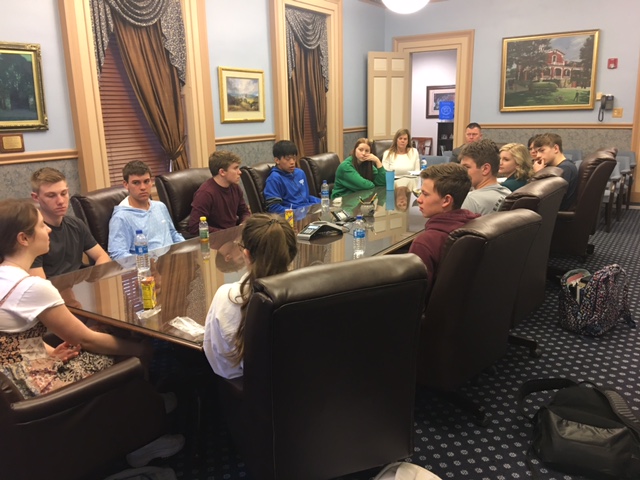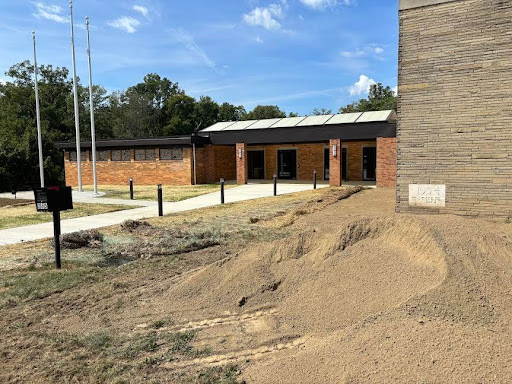Student Advisory Panels bring students’ voices, change to THS
Photo courtesy of Tara Krieger.
Members of the Sophomore class discuss curricular changes in their March Student Advisory Panel with Dr. Lucas.
In a time where young people across the nation and the world are fighting for their voices to be heard, Trinity Area School District has reinstated a powerful means for its students to do just that: the Trinity High School student advisory panels to the superintendent (SAPs). Headed by TASD superintendent Dr. Lucas and select members of grades 9-12, the committees give students the opportunity to voice their opinions and weigh in on a variety of district-wide matters.
The panels were started informally in 2011 when then-assistant superintendent Lucas took action to gather feedback from the student body. They were formalized by 2014 and have met a few times throughout each school year ever since, although the covid pandemic temporarily halted them. In December 2021, they were able to be held for the first time since the 2019-2020 school year.
Each grade-level panel is comprised of about 15 students selected from all areas of the student body to allow for a well-balanced representation of the THS student population. Once students are selected to the panel their freshman year, they remain on it through their senior year unless they decide to opt out at some point.
Every grade meets with Lucas and TASD Director of Curriculum and Instruction Dr. DeMore to discuss everything from the curriculum to school safety and offer suggestions for improvement. In the past, a suggestion for more student parking brought about the creation of the current lower level parking lot, and many of the career pathways THS offers were SAP propositions. Not all of the proposals at the meetings have been quite so serious, though; the digital jukebox and pool tables in the high school cafeteria were initiated by the advisory meetings, too.
Many students feel that SAPs are key to bringing about change in the high school and the district. In the most recent meetings, students were able to give their opinions on topics like better engagement in the classroom, fluidity of the curriculum and potential benefits of new elective courses.
However, Junior panel member Rylee Elling brought up one potential issue.
“One drawback might be selection of the students. I know some people might feel that students [selected to the panels] are not a good representation of the student body,” she said, leading to a panel with more bias and less unique perspectives.
She also thought that the committees are critical for student-administration communication. After all, SAP members don’t just offer their suggestions and positive feedback. The meetings additionally give students a chance to bring up concerns on behalf of the student body that administration might not be aware of.
Freshman Ava Bowman, a member of the ninth grade SAP, agreed with Elling’s feelings about the panels.
“The students get to say their concerns and even positive things, and it [their concerns] goes back to the teachers to be resolved…I think it’s important for students to express their ideas, and I like that the superintendent doesn’t shut down our ideas and [instead] listens to us,” she said.
Lucas is also firm believer in the importance of the SAPs: “It is important to us [administration] because it’s important to the kids. It’s another type of data. Student feedback is important feedback, and we need to see where we need to make changes and improve programs.”
He additionally mentioned that he is proud of what the panels have accomplished and hopes to initiate a similar style of meeting at the middle school level to gather the perspective of grades six to eight.
Overall, the panels allow students to bring their concerns to TASD administration and give a voice to the student body. The emphasis placed on direct and open communication reflects the Hiller mindset and will likely continue to improve THS and the Trinity Area School District for years to come.
Outside of school, you can usually find Emma dancing, solving word puzzles, buried deep inside a book, or dreaming of some new and delicious dessert to...






